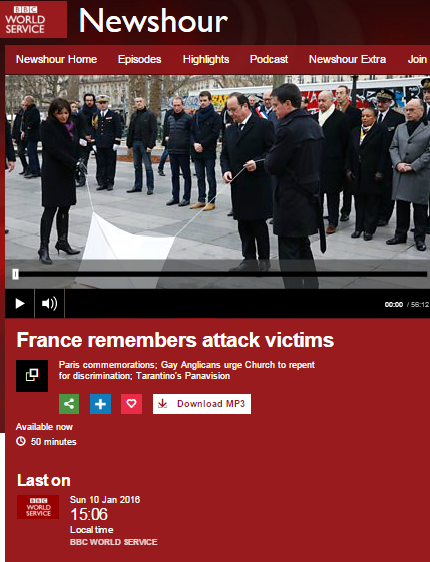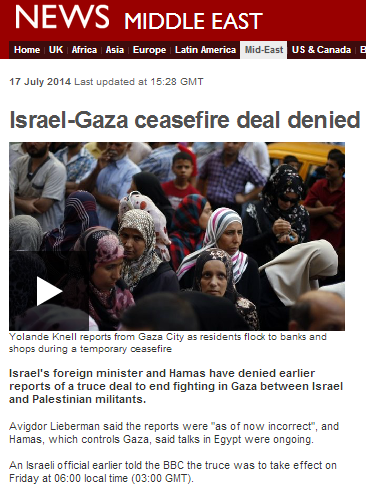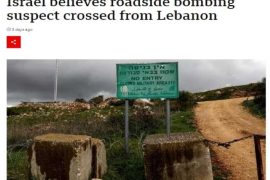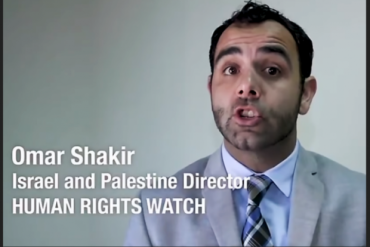The January 10th edition of the BBC World Service radio programme ‘Newshour’ included a discussion (from 44:43 here) about punitive demolitions of the houses of terrorists.
Presenter James Coomarasamy introduced the item as follows:
“Now…eh…one response by the Israeli authorities to the recent raft of so-called ‘lone-wolf’ attacks by Palestinians wielding knives, guns, even cars has been to reintroduce a policy of demolishing the homes of family members of those who perpetrate violence. It’s a divisive tactic; it was condemned by many Western governments as collective punishment and in 2005 a report by the Israeli Defence Forces concluded it wasn’t an effective one. That led to an almost total halt in demolitions for nearly a decade. So, has anything changed? Well in a moment we’ll hear from two Israelis with differing points of view. First let’s hear from someone directly affected by the policy. Muawiya Abu Jamal is a Palestinian construction worker. His brother and cousin killed four Israelis in an attack on a synagogue in November 2014. Although he has never been investigated in connection with that crime, his home was among those belonging to the family that were destroyed last October.”
Ghassan and Uday Abu Jamal in fact murdered six Israelis in their attack on the synagogue in Har Nof – not four as Coomarasamy inaccurately states.
Coomarasamy’s final sentence in that introduction clearly leads listeners to believe that Muawiya Abu Jamal’s house was deliberately – and unjustifiably – demolished and his interviewee’s account supports that allegation.
Muawiya Abu Jamal (voiceover): “After the operation by my brother Ghassan and cousin Uday on the 18th of November 2014 an order was issued to destroy their houses. This was implemented in October 2015. The Israeli forces used large enough quantity of explosives not only to destroy Ghassan and Uday’s houses but to destroy my own house nearby as well, plus the homes of my two other brothers.”
Let’s take a closer look at the facts behind that portrayal. The demolition orders for the houses of Ghassan and Uday Abu Jamal were issued in November 2014 and the family exercised its right of appeal, leading to a temporary court injunction on the order. The High Court of Justice eventually rejected the appeal. Contrary to the impression given in this item, the order on Uday Abu Jamal’s house was not carried out at the same time as that on the house of his cousin and explosives were not used when, on July 1st 2015, the house was sealed.
On October 6th 2015 the demolition order on the house of Ghassan Abu Jamal was carried out. What is not clarified by the interviewee is that his own house is situated next door to that of his brother and in the same building as the apartments of additional members of the family. Whilst unintentional damage did apparently occur to those adjacent structures during the demolition process, James Coomarasamy’s inference that Muawiya Abu Jamal’s house was intentionally demolished despite his “never [having] been investigated in connection with that crime” is inaccurate and materially misleading.
Muawiya Abu Jamal continues:
“What can you say to a child when he asks you where is my toy? Where is my book? By demolishing homes they think other people will be scared. Also the Israelis think that demolishing homes is a deterrent but on the contrary; people have increased their attacks. I give you an example in my own family. After destroying the houses of Ghassan and Uday and the other houses nearby, my cousin Alaa Abu Jamal was there. He watched what the Israelis were doing – the force they were using – and then he went out a week later and committed another attack against the Israelis.”
Listeners are not informed that Rabbi Yeshayahu Krishevsky was killed and five other people wounded in the terror attack carried out by Alaa Abu Jamal on October 13th 2015. Interestingly, when Muawiya Abu Jamal was interviewed by Jeremy Bowen just days after that attack, he provided a different ‘explanation’ for his cousin’s actions, claiming that he was “ground down by the occupation”. No mention is made of the fact that following the terror attack at the Synagogue in Har Nof carried out by his relations, Alaa Abu Jamal publicly praised their acts as being:
“…”something normal which could be expected from anyone who is brave and has a feeling of belonging to his people and Islam.
“This act was carried out because of the pressure placed on the Palestinian people by the Israeli occupation government in Jerusalem, as well as the continued acts of aggression against al-Aqsa,” he continued.
Following the axe attack that killed four worshipers and a policeman, Abu Jamal said: “People reacted with cries of joy when we received word of their death. People here handed out sweets to guests who came to visit us, and it was a great celebration for our martyrs.””
Neither are audiences told about the wider Abu Jamal family’s approach to the terror attack at the Synagogue – including Uday’s father’s claim that “this is a religious war” and his mother’s praise for the attackers – or about the reaction from broader Palestinian society. Listeners are hence left with the highly questionable take away message that the only possible and relevant background to Alaa Abu Jamal’s actions was the demolition of his relative’s house.
The item continues with a conversation between Yisrael Medad and Jerusalem council member Laura Wharton. Surprisingly, Dr Wharton did not tell listeners about the recently published study by some of her colleagues at the Hebrew University of Jerusalem which shows that “punitive house demolitions (those targeting Palestinian suicide terrorists and terror operatives) cause an immediate, significant decrease in the number of suicide attacks.”
Resources:
BBC World Service contact details




